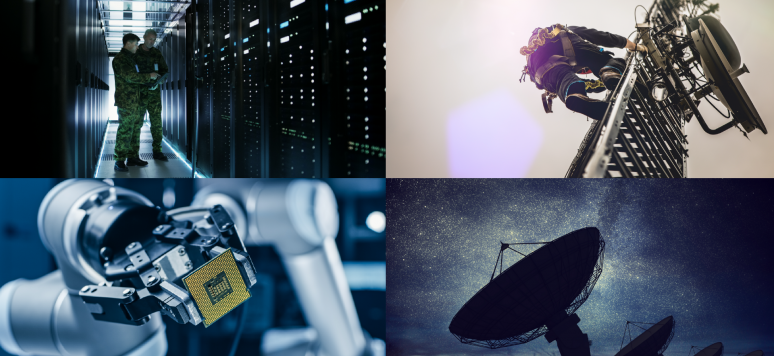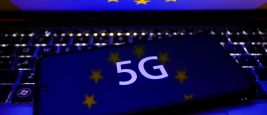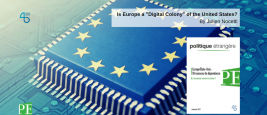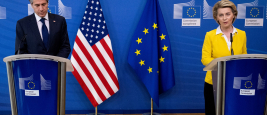Quantum physics, a field little known to the general public and relatively difficult to grasp as its laws are counter-intuitive, constitutes nevertheless a critical field of international strategic competition.

Geopolitics of Technology

Artificial intelligence (AI), 5G, cybersecurity, robotics, semiconductors, space... Technology, especially in the digital domain, is now deeply affecting all human activities and, by extension, international relations. The resulting political, strategic, economic and social issues manifest themselves at multiple political scales involving states, international organizations and private companies. The dynamics of international competition and cooperation are transformed.
It is to respond to these challenges that Ifri launched the Geopolitics of Technology program in the fall of 2020, which builds on the work it already carried out on these subjects for several years. In 2023, it incorporates Ifri's activities on Space and, in 2024, becomes the Geopolitics of Technology Center.
The Center takes a resolutely European approach to international issues related to so-called critical technologies. Its work is organized around four cross-cutting themes:
- Power: redistributions of power caused by new technologies, in particular digital; military and dual innovations; transformations of international competition;
- Sovereignty: definition of critical infrastructures and technologies; industrial and innovation policies in strategic sectors; opportunities and risks associated with international value chains;
- Governance: ethical and legal issues; interactions between companies, states, international organizations and users; public-private partnerships and GovTech;
- Society: political and social impacts of technological innovations; risks and opportunities for the future of work, health, the fight against climate change; connectivity and economic development.
Head of the Geopolitics of Technology Center
...Research Fellow, Geopolitics of Technology Center
...Research Fellow, Space
...Associate Fellow, Russia / Eurasia and Geopolitics of Technologies Centers
...Associate Research Fellow, Geopolitics of Technology Center
...Former Research Fellow and Head of Ifri's Geopolitics of Technology Program
...The acute Sino-American tensions which started in 2018 have been coupled with controversies around 5G technology, exemplified by the spotlight placed on Chinese equipment manufacturer Huawei and the security risks associated with its use. For Europe, the 5G challenge at the international level...
How to reduce the vulnerabilities induced by these global value chains to be more independent, while taking into account the reality of these productive processes which precisely generate interdependencies?
Computing power plays a key role in enabling machine learning, for scientific research, and in the military domain. Therefore, the race for computing power has become a key element of the US-China technological competition, and it is also a strategic priority for Europe.
Edward Snowden’s revelations, the Cambridge Analytica affair and the digital transformation accelerated by the Covid-19 crisis have all shown Europe's technological dependence on foreign powers.
Non-European cloud service providers host the vast majority of European data, which is viewed as an economic as well as a political problem. Gaia-X, European governments and the European Union aim to bolster the European cloud market while responding to data privacy and cybersecurity concerns....
The health crisis has triggered a tectonic movement in the recomposition of health data governance and protection models around the world, while accelerating the investment of large digital companies in the field of e-health.
As a consequence of the positive momentum in Transatlantic relations brought about by the arrival of the Biden administration, significant progress is expected on a range of key digital issues.
To respond to growing global competition, the EU has made notable progress on the internal dimension of technology policy over the past 3 years. It is now also seeking to adapt its foreign policy
What are the next geopolitical challenges of the century? The global pandemic has altered the equilibrium between Asia and the West and sealed the rift between China and the United States, accentuating the world’s shift towards the East. On this polarized chessboard, two fault lines converge:...
Aucun résultat


















